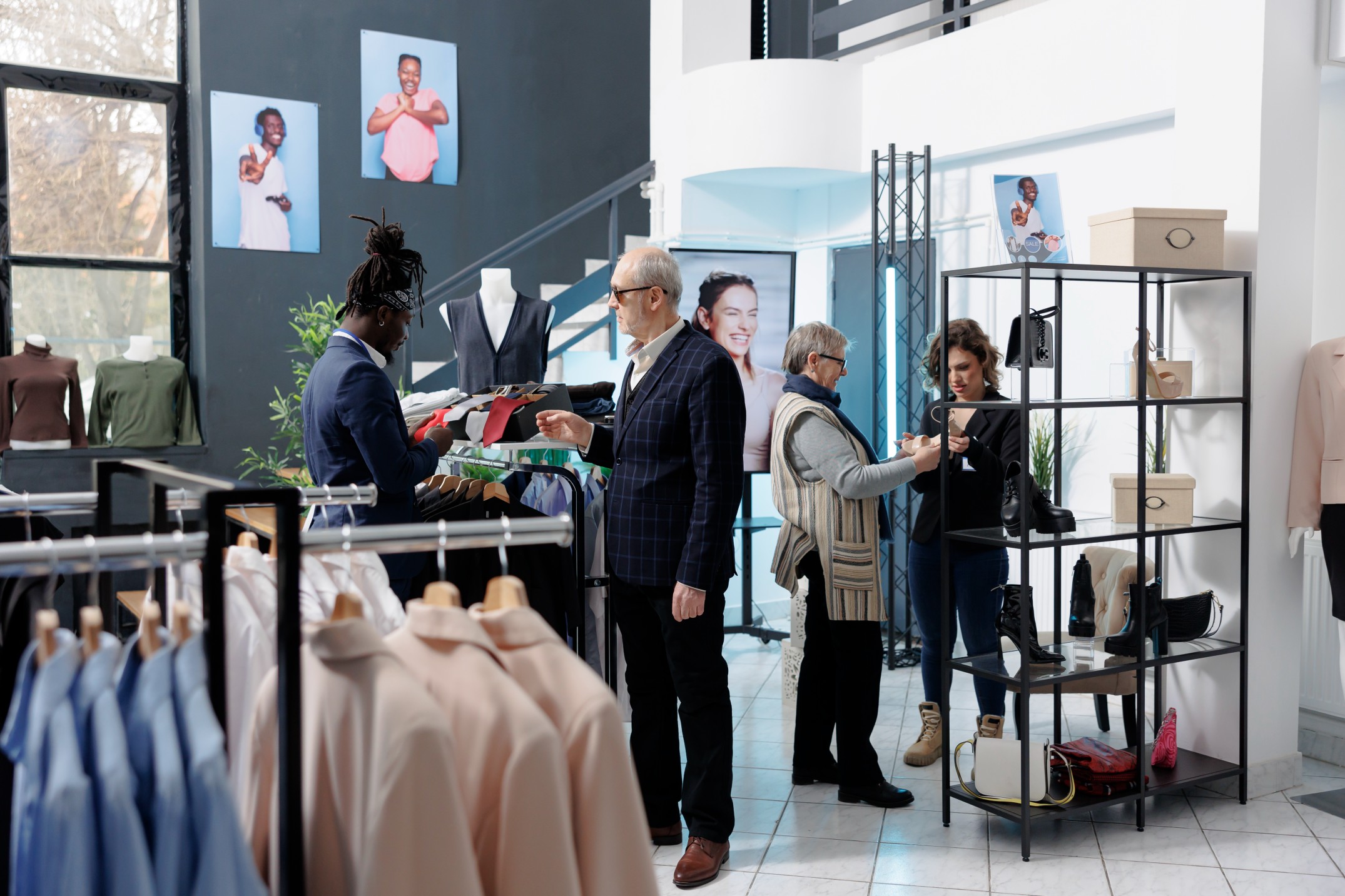Transforming Retail Space Construction with Technology and Innovation

Retail spaces have always been a reflection of the times. From sprawling department stores to sleek, modern shopping centers, the design and construction of retail spaces evolve alongside consumer preferences and technological advancements. In today’s fast-paced, digital-first world, retail space construction must be flexible, tech-enabled, and customer-centric to meet the demands of both shoppers and retailers.
Gone are the days of static retail environments. Today’s retail spaces must accommodate hybrid shopping experiences, integrate advanced technologies, and offer eco-friendly solutions. This blog explores how technologies like Building Information Modeling (BIM), smart building systems, AI-driven project management, and sustainable construction practices are transforming the retail construction landscape.
As e-commerce continues to grow, the role of physical retail spaces is shifting. Retailers are reimagining their stores to offer more than just products—they’re creating experiences. Whether it’s pop-up shops, experiential zones, or hybrid click-and-mortar stores, the construction of retail spaces must cater to modern shoppers seeking immersive, interactive environments.
Challenges in Retail Space Construction:
Flexibility: Retailers require spaces that can quickly adapt to seasonal changes, product launches, and evolving customer demands.
Technology Integration: Modern retail spaces must be equipped with cutting-edge technology to create a seamless omnichannel experience for customers.
Sustainability: As sustainability becomes a priority for consumers, retailers are seeking eco-friendly construction solutions that reduce energy consumption and minimize environmental impact.
These challenges call for a technology-driven approach that allows retailers to stay competitive in an increasingly digital world.
BIM is revolutionizing the construction of retail spaces by providing builders and architects with a powerful tool to visualize, plan, and collaborate on projects. From the layout of storefronts to the integration of technology, BIM enables precise planning and design that can adapt to the fast-paced nature of the retail industry.
Key Benefits of BIM for Retail Spaces:
Real-Time Collaboration: BIM allows architects, contractors, and stakeholders to collaborate on a single 3D model of the retail space. Changes can be made in real time, reducing the likelihood of errors or costly delays.
Space Optimization: BIM helps retailers design spaces that maximize customer flow, product placement, and overall store efficiency. Retailers can experiment with different layouts to create the most engaging shopping experience.
Flexibility in Design: Retail spaces often need to be reconfigured based on seasonal changes or marketing campaigns. BIM allows for easy modification of layouts, ensuring that spaces can adapt quickly and efficiently.
By leveraging BIM, retail space construction becomes more streamlined and adaptable, providing retailers with the flexibility they need to stay competitive.
Smart technology is becoming an integral part of the retail experience. From interactive displays to IoT-enabled inventory systems, retail spaces must be designed with the integration of smart technologies in mind. Smart building systems are transforming the way retail spaces operate, enhancing both the customer experience and operational efficiency.
Key Smart Technologies in Retail Construction:
Smart Lighting and HVAC: IoT-enabled lighting and HVAC systems automatically adjust based on occupancy and time of day, reducing energy waste while providing a comfortable shopping environment.
Automated Inventory Management: Sensors and RFID technology enable real-time inventory tracking, ensuring that retailers can manage stock levels more efficiently and prevent out-of-stock situations.
Digital Signage and Interactive Displays: Smart retail spaces incorporate digital signage and interactive displays to engage customers and create personalized shopping experiences.
The integration of smart building technologies starts during the design and construction phases. Builders and architects must plan for the seamless integration of these systems to ensure that retail spaces are equipped with the latest innovations.
AI-driven project management tools are revolutionizing the construction industry by providing data-driven insights and automating key processes. In retail space construction, where time is of the essence and budgets are tight, AI tools are helping builders stay on schedule and within budget.
How AI is Enhancing Retail Construction:
Predictive Analytics: AI tools analyze data from previous projects to predict potential delays and suggest proactive solutions, reducing downtime and ensuring that retail spaces are ready for opening day.
Resource Optimization: AI helps builders allocate resources more effectively, ensuring that labor, materials, and equipment are used efficiently throughout the construction process.
Real-Time Progress Monitoring: AI-powered tools provide real-time updates on project status, allowing builders and stakeholders to monitor progress and make informed decisions quickly.
With AI-driven project management, retail space construction becomes more efficient, reducing the time to market for new stores and helping retailers stay agile in a fast-changing industry.
Sustainability is becoming a key factor in retail construction as consumers and businesses alike place a higher value on eco-friendly practices. From reducing energy consumption to minimizing waste, sustainable construction practices are shaping the future of retail spaces.
Sustainable Practices in Retail Construction:
Energy-Efficient Design: Retail spaces are increasingly being designed with energy efficiency in mind. Solar panels, energy-efficient lighting, and insulated windows are common features in modern retail construction.
Sustainable Materials: The use of recycled materials, such as reclaimed wood and recycled steel, is becoming more prevalent in retail space construction. These materials not only reduce environmental impact but also create unique, aesthetically pleasing designs.
Water Conservation: Sustainable retail spaces often include water-saving features such as low-flow plumbing fixtures and rainwater harvesting systems.
By integrating sustainable construction practices, retailers can reduce their carbon footprint, lower operating costs, and appeal to eco-conscious consumers.
As technology continues to reshape retail space construction, platforms like AiDOOS play a pivotal role in connecting builders with the expertise and tools needed to stay ahead.
How AiDOOS Supports Retail Construction:
On-Demand Expertise: AiDOOS provides access to technology experts who specialize in BIM, smart building integration, and sustainable construction, ensuring that retail projects benefit from the latest innovations.
Seamless Collaboration: The platform facilitates collaboration between architects, contractors, and technology providers, helping to ensure that retail spaces are built efficiently and on time.
Sustainability Consulting: AiDOOS helps builders incorporate eco-friendly materials and energy-efficient systems into their retail construction projects, meeting the growing demand for green buildings.
With platforms like AiDOOS, retail construction teams can access the tools and expertise needed to create innovative, sustainable, and tech-enabled retail spaces.
The construction of retail spaces is no longer just about bricks and mortar—it’s about creating dynamic environments that engage customers, integrate advanced technology, and meet sustainability goals. From BIM and smart building systems to AI-driven project management and green construction practices, the future of retail space construction is being shaped by technology.
As retailers continue to evolve, their physical spaces must keep pace. By leveraging the latest construction technologies and platforms like AiDOOS, builders can deliver retail spaces that are not only functional and beautiful but also adaptive, sustainable, and ready for the future.

By redesigning packaging, exploring reusable models, investing in smart tracking, and leveraging the VDC model for execution, beverage manufacturers can reduce their environmental footprint while boosting their brand relevance and operational resilience.

Even the most capable in-house IT teams often fall short when it comes to minimizing downtime. While Managed Services solve much of the downtime problem, the VDC model supercharges it with flexibility, scalability, and domain-specific expertise.